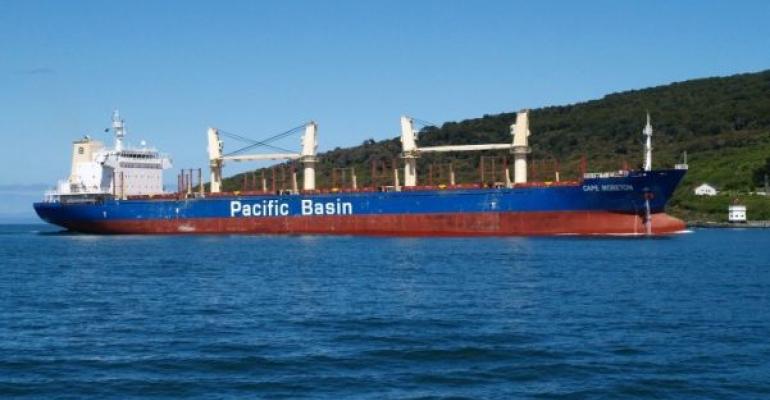The price tags for the vessels are $18.63m and $17.2m for the respective two 35,947-dwt handysizes built in 2015, $20.51m for the 2015-built, 57,631-dwt supramax, and $17.5m for the 2012-built, 61,442-dwt supramax. The ships were all constructed in Japan.
The secondhand vessels are scheduled to be handed over to Pacific Basin between October 2019 to mid-April 2020.
“These vessels are modern and of high quality with designs suitable for the company’s operations,” Pacific Basin stated.
“Two of the four vessels are supramaxes, allowing the company to increase its relatively lower proportion of owned versus chartered-in supramax vessels. The two handysize vessels are logs-fitted and allow the company to increase its proportion of larger handysize ships in accordance with its strategy,” it said.
The two handysizes and one supramax are currently chartered by Pacific Basin under long term time-charter contracts, while the remaining supramax is not currently chartered by the company.
“Upon delivery of the chartered vessels from their respective sellers, such long term time-charter agreements will be terminated and the chartered vessels will become part of the group’s owned fleet. As such, the purchase of these chartered vessels will eliminate long term time-charter costs and replace them with significantly lower owned vessel cash costs, hence benefiting the group’s operating cash flow,” Pacific Basin explained.
Read more: Baltic Exchange launches new assessment to track ship operating costs
“The dry bulk market is recovering and the company sees upsides in secondhand values, and the board considers that these purchase prices are attractive and the vessels will be beneficially employed within the group’s fleet for the long term after they are delivered,” it added.
Copyright © 2024. All rights reserved. Seatrade, a trading name of Informa Markets (UK) Limited. Add Seatrade Maritime News to your Google News feed.


